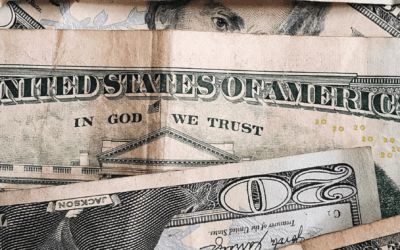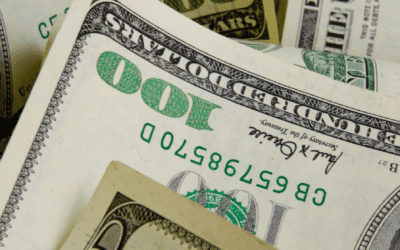The concept of a Financial Transaction Tax (FTT) is not new, but a move to impose it gained traction after 2008’s financial crisis and, more recently, FTTs have found themselves once again at the centre of controversy.
The first FTT was imposed in 1694 by the London Stock Exchange as a form of stamp duty. The economist John Maynard Keynes famously became an advocate of financial transaction taxes after the Great Depression of the 1930s.
Today, over 40 countries, including Belgium, France, Ireland, Italy, Spain, Switzerland and the United Kingdom, all collect FTTs and there is growing consensus in favour of global adoption.
Well, that’s the case in the European Union (EU) at least. The picture is less clear in the US. There, the subject was a political hot potato in the 2020 presidential election race and has remained a contentious issue since then, with New Jersey the only state supporting the introduction of an FTT.
Like most issues surrounding tax, the debate is influenced by a multitude of interest groups, lobbyists and opposing parties all lining up to do battle on behalf of their sponsors. But instead of getting caught up in the usual rhetoric we at Nomad Capitalist prefer, as ever, to take a more balanced view of the arguments by looking at the cold, hard facts both for and against FTTs.
What is a Financial Transaction Tax?
As the name suggests, an FTT is a tax levied on the transaction that underlies the buying and selling of financial assets. This can involve securities like stocks and bonds, derivatives, futures and currency transactions.
FTTs apply to business transactions involving economic goods, including a tax on financial transfers such as bank deposits. By being levied on every transaction instance, an FTT taxes a percentage of the asset’s value once traded.
The asset type dictates the amount of tax paid and typically ranges from 0.1% to 2% per transaction. The money is then collected automatically by electronic systems via exchanges or counterparty platforms.
Financial Transaction Tax: The Case Against
While the 2008 global financial crisis focused new attention on the role played by FTTs in reducing dangerous speculation, conclusive evidence is still missing on whether they are effective at eliminating bubbles.
While it seems evident that such a tax would rein in high-earning traders and speculators, it would also, directly and indirectly, impact investors of all income levels. With large numbers of low to middle-income households investing in mutual funds, the costs of imposing an FTT would be a significant burden. Charges would quickly mount as the tax could be levied multiple times on every investment, depending on how it is designed.
There’s little doubt it would make investments more expensive and less profitable by removing competition, adding trickle-down costs and fees and, ultimately, reducing the average person’s financial power.
In short, by putting an additional tax on investments, an FTT would place the extra burden on the consumer and not the upper echelons it is intended to impact.
Indeed, forcing investors to work longer to reach the same retirement savings goals, for example, or take out student loans to pay for a college education, would hit their overall financial position and could seriously disrupt their lives.
Those who oppose introducing an FTT claim that taxing the sale or purchase of mutual fund shares will simply increase the cost of executing a trade.

This increase in trading costs could be many times the direct cost of the tax, including the direct cost of selling stocks and rebalancing funds based on multiple transactions.
At the end of the day, mainstream investors will face heavy costs, no matter how the tax is designed. In terms of international competitiveness, adding taxes harms markets by increasing costs and decreasing the value of companies, hurting a country’s market liquidity in the process.
Indeed, in a 2019 poll, the US Chamber of Commerce Centre for Capital Markets Competitiveness (CCMC) found that 63% of Americans opposed a Financial Transaction Tax.
Financial Transaction Tax: The Case For
These taxes are designed to raise revenue but are also often intended to influence the behaviour of financial institutions and markets.
Taxes on the purchase or sale of equities are designed to reduce speculation and limit rapid fluctuations or ‘bubbles’ in asset prices.
They do this by acting as a deterrent to the frequency with which investors buy or sell stocks. The argument goes that by dampening demand when investor sentiment is overly optimistic, FTTs minimise excessive risk-taking and speculation that can lead to market crashes.
Sharp declines happen when stock prices inflate and do not reflect realistic valuations. These markets, and in turn, investors, are vulnerable to sudden corrections or crashes that wipe out the value of holdings.
Proponents of FTTs point to the commodification of money in which a ‘casino economy’, not linked to actual goods and services, is divorced from real economic growth. They argue that very high volumes of financial transactions, as seen in 2008, exacerbate volatility and increase the adverse effects of the financial crisis.
In some quarters, financial transaction taxation has also been proposed as a solution to the dangers of currency speculation. Currency speculators make money by rapidly acting to manipulate the value of a nation’s currency by either buying or selling positions in that currency at speed. Though undeniably lucrative for some, this practice can disrupt the value of a nation’s currency and potentially damage these countries’ trade and financial policies.
By taxing such activity, an FTT would, it is argued, reduce the profitability of speculative activity, disincentivise rapid turnaround traders and reduce market volatility. Collecting a relatively modest amount of tax on currency exchange transactions would not damage the overall economic health of a country introducing it, FTT supporters insist. In fact, according to the Joint Committee on Taxation of the US Congress, an FTT of 0.1% on all securities would raise US$777 billion in revenue over a 10-year budget window.
Finally, being a progressive tax levied on those who trade a disproportionate share of financial assets, FTT backers say it would divert tax revenues to lower-income groups.
In summary, an FTT would:
- Limit certain kinds of speculative trading activity
- Make it more challenging to profit from currency speculation
- Reduce volatility and help stabilise financial markets
- Redistribute money from wealthy traders and bankers elsewhere.
So, Do We Really Need FTTs?
At Nomad Capitalist, we take a sceptical stance regarding government interference in the markets. We take the view that, even if you acknowledge some merit in wanting to redistribute wealth, an FTT is simply the wrong way to go about it.
Various countries have been toying with introducing an FTT for several hundred years. More recently, when recession or even the hint of an economic downturn rears its aesthetically challenged head, the bureaucrats and bean counters look for another way to pass the buck.
The plain truth is that we already have lots of taxes designed to distribute wealth better. But these taxes primarily raise more revenue for governments, who then decide how to spend it which begs the question: should our governments be looking at themselves rather than blaming Wall Street for wealth inequalities?
Above all, FTTs are a tax on how modern trading has evolved, as evolve it must. Would we rather go back to the days of flop-haired yuppies screaming, ‘buy, buy, buy!’ down a handset the size of a house brick? Or should we acknowledge that stock markets, investors and the whole shooting match rely on rapid, high-frequency trades or whatever they’re now called?
At Nomad Capitalist, FTTs put us in mind of the little Dutch boy who saved his village by sticking his finger in the dam. Except this time, it’s some ham-fisted bureaucratic King Cnut trying, and failing, to halt the inevitable tide of progress.
In this area, at least, our governments are drowning, not waving.
As we know to our cost, it never turns out well when governments become overly obsessed with meddling with the free market. It’s called a free market for a reason: people are ‘free’ to make money, to create a better life for themselves and their families and to enjoy the privileges that were once the sole preserve of the few.
To say an FTT is short-sighted is so obvious as to be comical. These taxes will have severe consequences for competition, jobs and economic prosperity – they’ll hurt everyone.
Have the powers that be forgotten that in places like the US and Britain, both the wealthy and the not-so-well-off already pay large amounts of tax? Getting in the way, slowing down, or even stopping wealth creation is a far more significant, destabilising factor than the ‘danger’ of speculation.
An FTT isn’t going to stop the next financial downturn; it’ll barely be a speed bump.
Ultimately, recessions – even extreme ones – are an inevitable part of the economic cycle, the causes of which are numerous, complex and inadequately understood. Laying the blame for recessions and economic downturns on stock markets and particular types of assets isn’t going to change anything.
Since the 2008 crash, the US government has introduced so many extra regulations and compliance requirements that there is very little chance that financial markets could ever be blamed again. Allowing stock markets to function better in the digital realm would be far better than a tax on progress.
The inevitable question regarding the subject of FTTs should always be: ‘Who ultimately foots the bill?’
According to the American Chamber of Commerce: ‘Supporters sell the FTT as a tax against Wall Street. The reality is that an FTT will penalise Main Street.’

Using a tax like FTT to offer a binary, black-and-white choice between the unbalanced extremes of unscrupulous speculators and protecting the ordinary person’s hard-earned dollar is wrong and even dangerous.
When it comes to tax, there are many shades of grey.
You have a choice and speculating to accumulate is a proven route to financial success, whether the tax man likes it or not. Making it more complex and expensive to invest by introducing a new tax is just another indicator of how badly flawed the current taxation system is.
When governments draw a line in the sand and tell you which side you should be on for your own good, you may as well move to the Caribbean. At least then, you’re taking action and making the only sensible choice – avoiding paying high taxes by taking the initiative and paying less.
That’s where Nomad Capitalist comes in. We help seven- and eight-figure entrepreneurs and investors create a bespoke strategy using our uniquely successful methods. We’ll help you keep more money, create new wealth faster, and be protected from whatever happens in just three steps. Become a client today.









